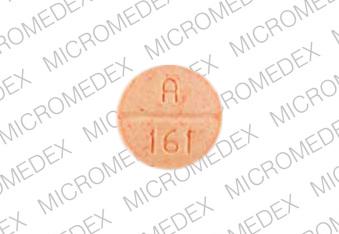Pemoline Dosage
Applies to the following strengths: 18.75 mg; 37.5 mg; 75 mg
Usual Adult Dose for:
Usual Pediatric Dose for:
Additional dosage information:
Usual Adult Dose for Attention Deficit Disorder
Pemoline was voluntarily withdrawn from the U.S. market by the manufacturers in October, 2005 due to a conclusion by the FDA that the overall risk of liver toxicity from pemoline products outweighs the benefits of this drug. The following dosage information applies to when the drug was available in the U.S.
Initial dose: 37.5 mg orally every morning.
Maintenance dose: May increase by 18.75 mg a day at one week intervals, up to a maximum of 112.5 mg/day. The effective dose range is 56.25 to 75 mg for most patients.
Usual Pediatric Dose for Attention Deficit Disorder
Pemoline was voluntarily withdrawn from the U.S. market by the manufacturers in October, 2005 due to a conclusion by the FDA that the overall risk of liver toxicity from pemoline products outweighs the benefits of this drug. The following dosage information applies to when the drug was available in the U.S.
<6 years: Safety and efficacy have not been established.
>=6 years:
Initial dose: 37.5 mg orally every morning.
Maintenance dose: May increase by 18.75 mg a day at one week intervals, up to a maximum of 112.5 mg/day. The effective dose range is 56.25 to 75 mg for most patients.
Renal Dose Adjustments
Pemoline should be administered with caution to patients with significantly impaired renal function.
Liver Dose Adjustments
Because of its association with life threatening hepatic failure, pemoline should not ordinarily be considered as first line drug therapy for ADHD. Treatment with pemoline should be initiated only in individuals without liver disease and with normal baseline liver function tests. It is not clear if baseline and periodic liver function testing are predictive of these instances of acute liver failure; however it is generally believed that early detection of drug-induced hepatic injury along with immediate withdrawal of the suspect drug enhances the likelihood for recovery.
The following liver monitoring program is recommended: Serum ALT (SGPT) levels should be determined at baseline, and every two weeks thereafter. If pemoline therapy is discontinued and then restarted, liver function test monitoring should be done at baseline and reinitiated at the frequency above.
Pemoline should be discontinued if serum ALT (SGPT) is increased to a clinically significant level, or any increase >= 2 times the upper limit of normal, or if clinical signs and symptoms suggest liver failure.
Dose Adjustments
Clinical improvement with pemoline is gradual. Using the recommended schedule of dosage titration, significant benefit may not be evident until the third or fourth week of drug administration. Because pemoline provides an observable symptomatic benefit, patients who fail to show substantial clinical benefit within 3 weeks of completing dose titration, should be withdrawn from pemoline therapy.
Precautions
Decrements in the predicted growth (i.e., weight gain and/or height) rate have been reported with the long-term use of stimulants in children. Therefore, patients requiring long-term therapy should be carefully monitored.
Clinical experience suggests that in psychotic children, administration of pemoline may exacerbate symptoms of behavior disturbance and thought disorder.
Dialysis
Data not available.
Other Comments
Pemoline therapy should be part of a total treatment program which typically includes other remedial measures (psychological, educational, social) for a stabilizing effect in children with a behavioral syndrome characterized by the following group of developmentally inappropriate symptoms: moderate to severe distractibility, short attention span, hyperactivity, emotional lability, and impulsivity. The diagnosis of this syndrome should not be made with finality when these symptoms are only of comparatively recent origin. Nonlocalizing (soft) neurological signs, learning disability, and abnormal EEG may or may not be present, and a diagnosis of central nervous system dysfunction may or may not be warranted.
More about pemoline
- Check interactions
- Compare alternatives
- Reviews (19)
- Drug images
- Side effects
- During pregnancy
- Drug class: CNS stimulants
Patient resources
Other brands
Related treatment guides
Further information
Always consult your healthcare provider to ensure the information displayed on this page applies to your personal circumstances.

